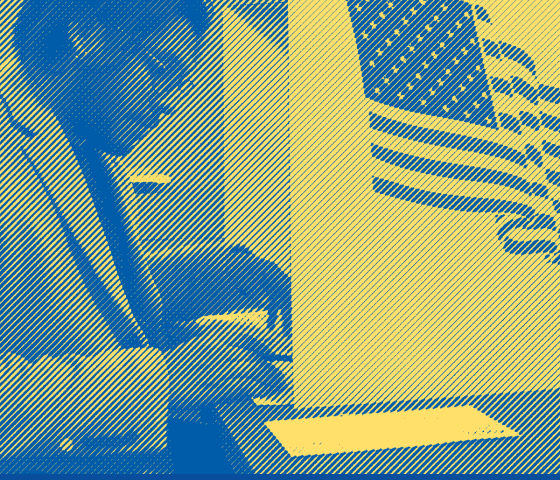Iowa no longer is the only state in the country to permanently and for life ban its citizens from voting following any felony conviction. Finally, tens of thousands of Iowans can now fully participate in our communities.
Gov. Kim Reynolds this morning signed Executive Order 7, restoring voting eligibility to many Iowans who were convicted of a felony who have completed their sentence.
This is a victory for democracy in our state.
For almost a decade, Iowans with any and all felony convictions were barred from voting, even after completing their sentences.
The draconian practice of felony disenfranchisement did nothing to keep our communities safer or make our democracy stronger. In fact, it did the opposite. It prevented thousands of Iowans from successfully reintegrating into society and becoming active, invested participants in our communities and our state.
And because of continuing racial disparities in Iowa’s criminal justice system, Black people in Iowa had been disproportionately hurt by this law; about 1 in 10 voting-age Black Iowans were being denied the right to vote because of a felony conviction.
Now, following probation and parole, many Iowans can once again register to vote and participate in elections for school boards, city councils, state representatives, and more.
It's a relief that the Governor's order does not make eligibility to vote dependent on how much money a person has, that is, it's not contingent on paying off fees and fines or other associated debts.
However, it is disappointing that those who have served the terms of their sentences for various forms of homicide were not included in the order. This category includes involuntary manslaughter, among others. We will continue to work to ensure that all Iowans who have completed their sentences can once again participate in the democracy that so profoundly affects them.
The fight is not over. While many Iowans are now eligible to register and vote, it's important that we continue to pursue a more permanent fix to the problem of felony disenfranchisement in our state. Another governor could issue a different executive order to reverse this current executive order. That's why we'll continue to advocate for an amendment to the Iowa Constitution.
